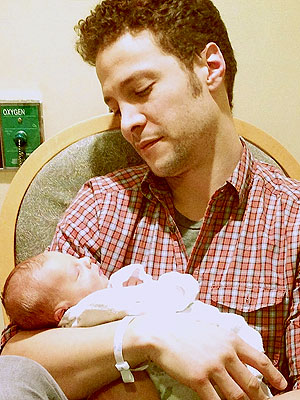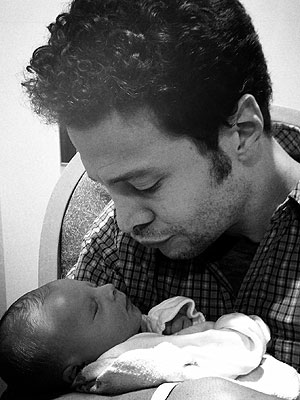ROME (Reuters) - Western powers pledged aid for Syrian rebels on Thursday but stopped short of offering them weapons, disappointing opponents of President Bashar al-Assad clamoring for more arms.
More than 70,000 Syrians have been killed in a fierce conflict that began with peaceful anti-Assad protests nearly two years ago.
Washington has given $385 million in humanitarian aid for Syria but U.S. President Barack Obama has so far refused to give arms, arguing it is difficult to prevent them from falling into the hands of militants who could use them on Western targets.
The United States said it would for the first time give non-lethal aid to the rebels and would more than double its support to Syria's civilian opposition, casting it as a way to bolster the rebels' popular support.
The help will include medical supplies, food for rebel fighters and $60 million to help the civil opposition provide basic services like security, education and sanitation.
U.S. Secretary of State John Kerry announced the new steps after a meeting of 11 mostly European and Arab nations within the "Friends of Syria" group.
The European Union, acting on a decision this month to send direct aid to the rebels, said it had amended sanctions on Syria to permit the supply of armored vehicles, non-lethal military equipment and technical aid, provided they were intended to protect civilians.
If the provision of non-lethal assistance goes smoothly, it could conceivably offer a model for providing weaponry should Western governments ultimately decide to do so.
The aid offered for now did not appear to entirely satisfy the Syrian National Council opposition, a fractious Cairo-based group that has struggled to gain traction inside Syria, especially among disparate rebel forces.
"Many sides ... focus (more) on the length of the rebel fighter's beard than they do on the blood of the children being killed," Syrian National Coalition President Moaz Alkhatib said at an appearance with Kerry and Italian Foreign Minister Giulio Terzi.
A rebel commander in Aleppo, Syria's second city left devastated by several months of heavy fighting, said the lack of arms was the main obstacle to victory for his forces.
"We hope ... that weapons will flow and things will change but we are not waiting for them - we are going ahead with our fighting plans on the ground," the commander, Abdel-Jabbar Oqaidi, told Reuters by Skype.
He estimated that four fifths of the city was now under rebel control and the insurgents had taken over Aleppo's historic Umayyad mosque and the Palace of Justice. The claim could not immediately be verified.
A picture posted on the Internet showed what activists said was a rebel fighter prostrate in prayer in the Umayyad mosque's courtyard, its blackened archways still bearing signs of a fire which damaged the 13th century complex last year.
The rebels were still fighting for control of three airports in the Aleppo region, Oqaidi said.
DISAPPOINTMENT
In what analysts described as a sign of disappointment at the West's reluctance to send arms, Syria's political opposition postponed talks to choose the leader of a provisional government, two opposition sources told Reuters in Beirut.
Opposition leaders hoped a Saturday meeting in Istanbul would elect a prime minister to operate in rebel-controlled areas of Syria, threatened by a slide into chaos as the conflict between Assad's forces and insurgents nears its second anniversary.
While one source said the meeting might happen later in the week, a second source said it had been put off because the three most likely candidates for prime minister had reservations about taking the role without more concrete international support.
"The opposition has been increasingly signaling that it is tired of waiting and no one serious will agree to be head of a government without real political and logistical support," said Syrian political commentator Hassan Bali, who lives in Germany.
Bali said the United States and other members of the core "Friends of Syria" nations appeared intent "on raising the ante against Assad but are not sure how."
A final communiqué said participants would "coordinate their efforts closely so as to best empower the Syrian people and support the Supreme Military Command of the (rebel) Free Syrian Army in its efforts to help them exercise self-defense".
Kerry said the United States would for the first time provide assistance - in the form of medical supplies and the standard U.S. military ration known as Meals Ready to Eat, or MREs - to the fighters.
A U.S. official told reporters it would give the aid only to carefully vetted fighters, adding that the United States was worried that "extremists" opposed to democracy, human rights and tolerance were gaining ground in the country.
"Those members of the opposition who support our shared values ... need to set an example of a Syria where daily life is governed neither by the brutality of the Assad regime nor by the agenda of al Qaeda affiliated extremists," the official said.
REBELS WANT ANTI-TANK, ANTI-AIRCRAFT WEAPONS
The continued U.S. refusal to send weapons may compound the frustration that prompted the coalition to say last week it would shun the Rome talks. It attended only under U.S. pressure.
Many in the coalition say Western reluctance to arm rebels only plays into the hands of Islamist militants now widely seen as the most effective forces in the struggle to topple Assad.
With fighting raging on largely sectarian lines, French President Francois Hollande said at a Moscow summit that new partners were needed to broker talks on ending the crisis, winning guarded support from Russian President Vladimir Putin.
"We think that this dialogue must find a new form so that it speaks to all parties," said Hollande, giving few details of his proposal.
Putin said Russia - one of Assad's staunchest allies - would look at Hollande's proposal, "which I think we could consider with all our partners and try to carry out."
Russia has said Assad's departure must not be a precondition for talks and a political solution, while the West has sided with Syria's opposition in demanding his removal from power.
Kerry's offer of medical aid and food rations fell far short of rebel demands for sophisticated anti-tank and anti-aircraft weapons to help turn the tables against Assad's mostly Russian-supplied forces.
It also stopped short of providing other forms of non-lethal assistance such as bullet-proof vests, armored personnel vehicles and military training to the insurgents.
Last week the European Union opened the way for direct aid to Syrian rebels, but did not lift an arms embargo on Syria.
Kerry said the U.S. role should not be judged in isolation but in the context of what other nations will do.
"What we are doing ... is part of a whole," he said. "I am absolutely confident ... that the totality of this effort is going to have an impact of the ability of the Syrian opposition to accomplish its goals."
(Additional reporting by Mariam Karouny; Writing by Alistair Lyon; Editing by Roger Atwood and Tom Pfeiffer)











